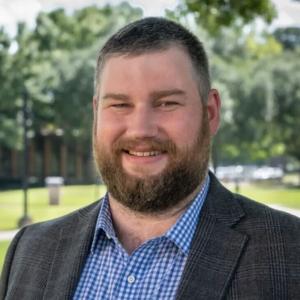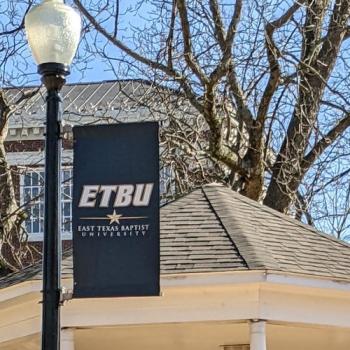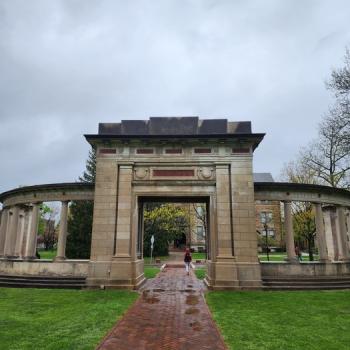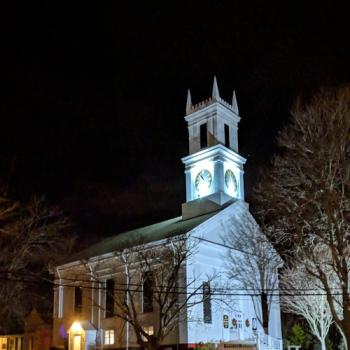Commentators often bemoan the attention that’s paid to Harvard in our cultural discourse.
Harvard, it’s sometimes said, educates a tiny fraction of American students and its significance is drastically overstated.
Surely, this line of argument runs, we should be paying more attention to the places that educate the vast majority of students: non-selective colleges and universities, most of them public, whose policies help determine the shape of the American citizenry and workforce far more than Harvard’s ever could.
The rejoinder, of course, is that what happens at Harvard has a tendency of trickling down to the rest of American academia. Love it or hate it (and I think most Americans probably tend to hate Harvard as a symbol of an out-of-touch elite but would also be pretty excited if a family member got to go there), Harvard matters.
My undergraduate alma mater, the University of Chicago, is certainly less iconic, although its campus is more beautiful and its commitment to intellectual inquiry more pure.
Chicago’s president, Paul Alivisatos, was not invited to testify before Congress about antisemitism like Claudine Gay of Harvard and her peers from MIT and Penn. Not coincidentally, unlike his peers from Harvard and Penn, he is still in office.
The Chicago Principles and Harvard’s Dilemma
Both Chicago and Harvard are private institutions. Both are predominantly politically liberal and neither is bound by the First Amendment, but Chicago scores much higher than Harvard in FIRE’s ranking of “free speech and open inquiry” (in the current version, Chicago is 13th, the highest rank of any private institution, and Harvard is 248th, the lowest rank of any university, public or private).
Now, I really doubt that Harvard is actually the worst place in the country for free speech. Although I respect the work they do, I suspect that FIRE is intentionally putting their finger on the scale to make Harvard score last.
In fact, having done my PhD there, I can say that Harvard is often home to lively conversations between people of radically different perspectives. The conservative Program on Constitutional Government, founded by the political scientist Harvey Mansfield, runs a phenomenal lunch series with visiting speakers. Harvard has thriving chapters of various evangelical Christian ministries and recognizes staffworkers from groups like InterVarsity and RUF as campus chaplains.
Looking at FIRE’s own analysis, Harvard’s free speech guidelines receive the highest “green” designation, while its approach to due process for accused students receives a lower “yellow” rating. In the measures that should contribute to the overall ranking, Harvard scores relatively well on things like openness and tolerance (68th and 59th for liberals/39th for conservatives). It scores worse for administrative support, comfort, and disruptive conduct (183rd, 193rd, and 198th). It’s not clear to me why this merits a free speech score of 0, a unique speech category of “abysmal,” and a ranking well below any of the subcategories.
Chicago, on the other hand, ranked first on FIRE’s list until recently (it was penalized for refusing to award recognized student organization status to a campus chapter of Turning Point USA). The Chicago Principles, written in 2014 to defend free expression on campus, are held up by FIRE as the gold standard for colleges.
Among other things, the statement concludes:
In a word, the University’s fundamental commitment is to the principle that debate or deliberation may not be suppressed because the ideas put forth are thought by some or even by most members of the University community to be offensive, unwise, immoral, or wrong-headed. It is for the individual members of the University community, not for the University as an institution, to make those judgments for themselves, and to act on those judgments not by seeking to suppress speech, but by openly and vigorously contesting the ideas that they oppose.
The Chicago Principles have now been adopted by over 100 other institutions, including Princeton and Columbia.
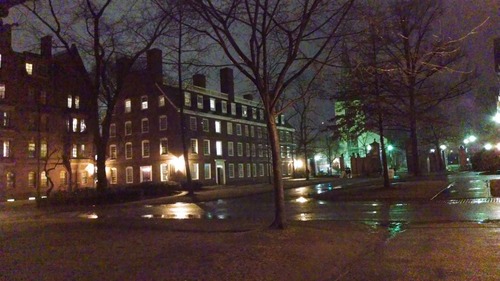
The Kalven Report and Institutional Neutrality
Even more significant to the university’s long-term trajectory has been the Kalven Report, adopted in 1967, authored by a committee led by the legal scholar Harry Kalven and including among others the preeminent scholar of black history John Hope Franklin and the future Nobel Prize-winning economist George Stigler.
The Kalven Report embraced the role of the university as a place which “creates discontent with the existing social arrangements and proposes new ones. The report concluded that a “good university, like Socrates, will be upsetting.”
Yet the agents of this work should be the scholars or students of the institution, not the university itself, which “must sustain an extraordinary environment of freedom of inquiry and maintain an independence from political fashions, passions, and pressures.”
“The neutrality of the university as an institution arises then not from a lack of courage nor out of indifference and insensitivity. It arises out of respect for free inquiry and the obligation to cherish a diversity of viewpoints.”
The university was not to “foster social or political values, however compelling and appealing they may be” and was not to endorse political measures except when circumstances “threaten the very mission of the university and its values of free inquiry.”
The policy has been of huge benefit to Chicago. Harvard presidents and deans are expected to offer an official statement after every political crisis or outbreak of hostilities that might cause anguish to the student body. Chicago administrators do issue statements, but they are normally fairly terse and apolitical. There is much less pressure to somehow put together the perfect formula of condemnation, sympathy (for both sides?), and offers of resources for affected students. Nor is there the need to finesse this to the point that it will be acceptable (to take the obvious example) to both pro-Palestinian and pro-Israeli activists, Jewish students alarmed by the rise of antisemitism, students worried about the doxxing of protestors, and professors who perceive an erosion of academic freedom.
Instead, the university can simply state its neutrality on political issues and allow its community members freedom to research, write, and speak as they see fit, while dealing with efforts to shut down free discourse or force the university away from neutrality (student occupations of buildings, harassment, attempts to deplatform speakers) using a clear student conduct policy.
In part because of these policies, Chicago has managed to cultivate a campus culture that is more tolerant of dissenting viewpoints than many other universities.
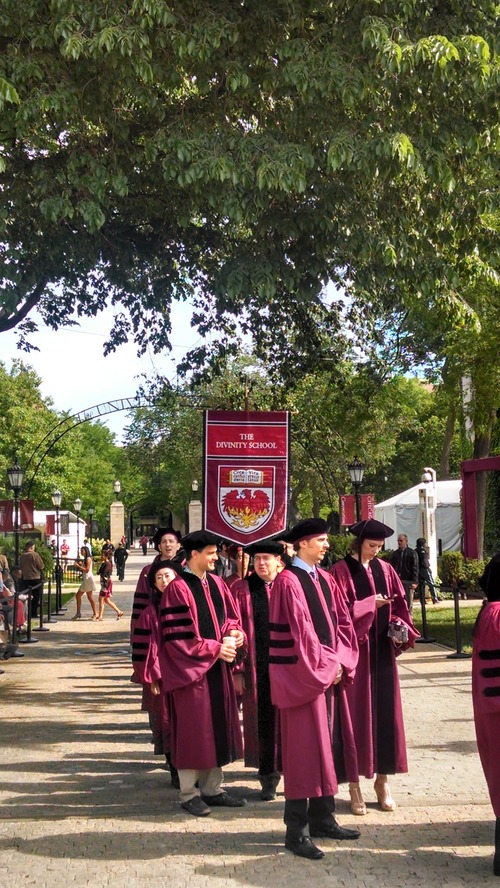
Christian Academia and Academic Freedom
Even though I was educated at Chicago and then Harvard, I now teach at an avowedly Christian university. Like many other Christian colleges, LeTourneau University expects faculty to be committed Christians who are active in their local churches.
This is a policy that clearly contradicts the ideals of the Chicago Principles and the Kalven Report. A professor who decided to leave the Christian faith would no longer be able to serve on the faculty.
Yet even if this restricts the freedom of individual professors, on the broader level I would argue that the existence of religious universities actually contributes to academic freedom by fostering research informed by the questions that arise from the cultures and theologies of religious communities.
One of my favorite organizations, Heterodox Academy, works to encourage intellectual diversity across academia. In predominantly secular academia, Christian orthodoxy is profoundly heterodox.
In my own field of American religious history, I am very appreciative of the ways in which the cultures and priorities of the different kinds of institutions that scholars inhabit promote intellectual diversity. The presence of competing perspectives leads to more rigorous scholarship, because scholars who disagree with us are more likely to hold us to account rather than affirm lazy scholarship that comes to a shared conclusion.
The places where religious historians are employed (public and private secular universities, liberal arts colleges, seminaries and divinity schools of all kinds, Catholic and evangelical colleges, research libraries and museums, and congregations) disagree about what’s historically important, and that’s a good thing for our understanding of the past.
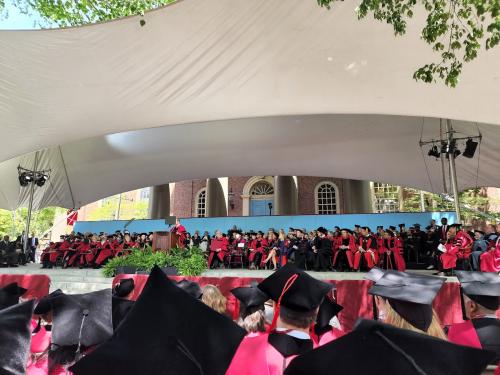
Resacralizing the University Mission
I also think that religious colleges can teach the broader university something about living out intellectual ideals. Christian colleges generally affirm an ideal of the integration of faith and learning in which scholarship, teaching, and the formation of students are a response to a shared divine calling.
As the philosopher Arthur Holmes put it in his influential The Idea of a Christian College,
Somehow or other, the student must realize that education is a Christian vocation, one’s primary call from God for these years, that education must be an act of love, of worship, of stewardship, a wholehearted response to God. Attitude and motivation accordingly afford but a beginning; this personal contact between faith and learning should extend to disciplined scholarship and to intellectual and artistic integrity.
Clearly Chicago and Harvard aren’t going to buy into this model any time soon, but I do think they can learn something from it.
At Christian colleges, at the very least most of the faculty would buy into the gist of Holmes’ statement. On the other hand, at Harvard or Chicago, it would be impossible to find a consensus on what education is truly for.
I attended a fantastic panel with the social psychologist Jonathan Haidt at Harvard where he painted the dilemma of the modern university as being stuck between two ultimate purposes: truth or social justice.
This could easily be seen as a false dichotomy, but I think it’s a real one that is faced by every institution when a group attempts to shut down controversial speakers in the name of justice, peace, or equity. The Kalven Report makes clear that an institutional commitment to academic freedom must override the (often valid) qualms of community members, although students and faculty are free in their scholarship and personal lives to make social justice (however conceived) their central focus.
The challenge is that the secular university, including Kalven’s own Chicago, lacks a shared philosophy to persuade its affiliates why truth, not social justice, should be its overriding principle. It does a better job at forming students into a pattern of engagement with competing ideas that trains students to comprehend before critique, but this is rarely made explicit in the pedagogical process.
Every fall, entering first years at the University of Chicago gather in Rockefeller Chapel to hear the “Aims of Education” address from an esteemed faculty member. You can read transcripts of the talks online. They’re often excellent, although they hardly speak with one voice.
As someone with a PhD in the study of religion, I’m tempted to think that there’s something religious about the event, which takes place in the liminal space of Orientation Week in between the ceremonial goodbye to parents at Hull Gate on Wednesday and the actual start to classes the following Monday. With hundreds of us gathered in the massive gothic chapel, there’s an aura of sacrality that gathers around the educational task.
I wonder if our secular universities need to lean further into that religious valence. Chicago’s decision to devote itself to truth above else is contestable. Perhaps, as Haidt suggests, other universities might formally dedicate themselves to social justice (or God, or the environment, or MAGA) instead.
Especially given the general disdain for freedom of inquiry among both right-wing and left-wing political activists, the ideal of truth is hard to sustain. If secular universities do not reinforce their stated values with both catechesis (a compelling account of why they hold academic freedom paramount) and rituals (disciplines that form students into practitioners of the intellectual virtues), their core commitments, even if they manage to maintain them through top-down pressure, will bear little fruit in their students’ conversations or their graduates’ vocations.

